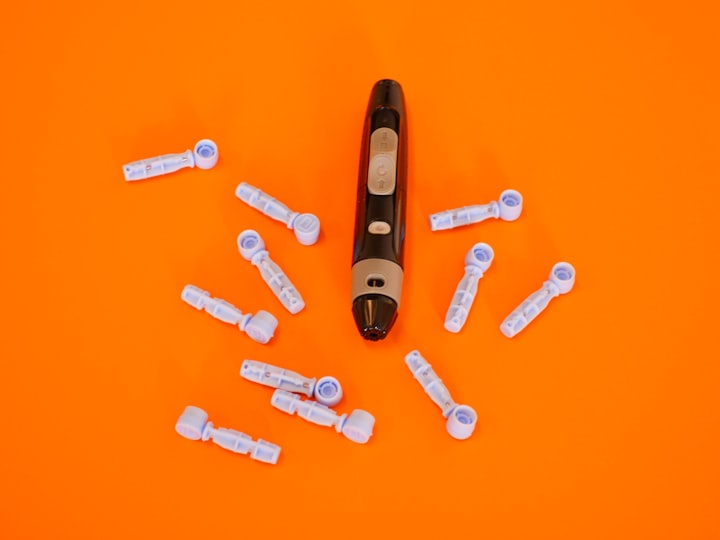
Diabetes is when the body cannot produce or properly use insulin, the hormone responsible for regulating blood sugar levels.
Type 1 diabetes is an autoimmune disorder where the body’s immune system attacks and destroys the cells that produce insulin, leading to a complete lack of insulin production.
Type 2 diabetes, on the other hand, is the result of the body becoming insulin resistant over time. This means that the body cannot use insulin effectively, leading to elevated blood sugar levels. This type of diabetes is often associated with lifestyle factors such as poor diet, physical inactivity, and being overweight or obese.
The long-term complications of uncontrolled diabetes can be severe including heart disease, stroke, kidney disease, blindness, and amputations. It is essential for people with diabetes to closely monitor their blood sugar levels and work with their healthcare provider to develop a management plan that works for them. This may include lifestyle modifications such as a healthy diet, regular physical activity, and maintaining a healthy weight, as well as medications and/or insulin therapy.
Click here for video on Smart Blood Sugar

Regular monitoring of blood sugar levels, A1C tests, and regular check-ups with a healthcare provider are essential for managing diabetes and preventing complications. Additionally, people with diabetes need to be aware of the signs and symptoms of hypoglycaemia (low blood sugar) and hyperglycaemia (high blood sugar) and know how to treat them properly.
Diabetic heart attacks are a serious concern for people with diabetes, as they are more likely to experience heart disease than those without it. Understanding the warning signs of a diabetic heart attack is crucial in ensuring prompt treatment and improving the chances of a positive outcome.
Click here for video on Smart Blood Sugar

Warning signs of a diabetic heart attack: The warning signs of a diabetic heart attack can be different for each person, but the following symptoms are common:
It may feel like pressure, fullness, squeezing, or pain in the centre of the chest.
Nausea and Vomiting: Nausea and vomiting can be heart attack symptoms, especially in women.
Click here for video on Smart Blood Sugar

Sweating: Sweating can occur before, during, or after a heart attack, even if the person is not hot or physically exerting themselves.
Light-headedness or Dizziness: Light-headedness or dizziness can be a warning sign of a heart attack, an autoimmune disorder if it occurs with chest pain or discomfort.
Fatigue: Unexplained fatigue or weakness can be a warning sign of a heart attack, mainly if it occurs with chest pain or discomfort.
Rapid or Irregular Heartbeat: A fast or irregular heartbeat can be a warning sign of a heart attack, primarily if it occurs with chest pain or discomfort.
Click here for video on Smart Blood Sugar

It is important to note that some people may not experience any symptoms before a heart attack. In these cases, the first sign may be a heart attack itself.
Risk factors for diabetic heart attacks: People with diabetes are at a higher risk of heart disease and heart attacks. The following factors can increase the risk of a diabetic heart attack:
High Blood Sugar: High blood sugar levels can damage blood vessels and increase the risk of heart disease.
High Cholesterol: High cholesterol levels can build up in the arteries and increase the risk of heart disease.
Click here for video on Smart Blood Sugar

Obesity: Obesity can increase the risk of heart disease, high blood pressure, and high cholesterol levels.
Physical Inactivity: Physical inactivity can increase the risk of heart disease and high blood pressure.
Poor Diet: A diet high in saturated and trans fats, salt, and added sugars can increase the risk of heart disease.
Click here for video on Smart Blood Sugar

It is essential to monitor and manage these risk factors to reduce the risk of a diabetic heart attack.
Importance of seeking immediate medical attention If you experience any warning signs of a heart attack, it is vital to seek medical attention immediately. Time is of the essence in treating a heart attack, as prompt treatment can prevent damage to the heart muscle and improve the chances of a positive outcome.
Click here for video on Smart Blood Sugar

If you have a heart attack, calling your local emergency medical services is the quickest way to get medical help.
About the Creator
Paul Rafferty
As a TEFL teacher, I undertook a proofreading course at London's prestigious Imperial College. I travelled around the world teaching English in countries such as the UK, Turkey, Poland, Spain, Mexico, the U.A.E and Saudi Arabia.





Comments
There are no comments for this story
Be the first to respond and start the conversation.